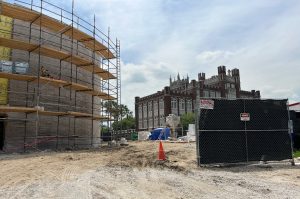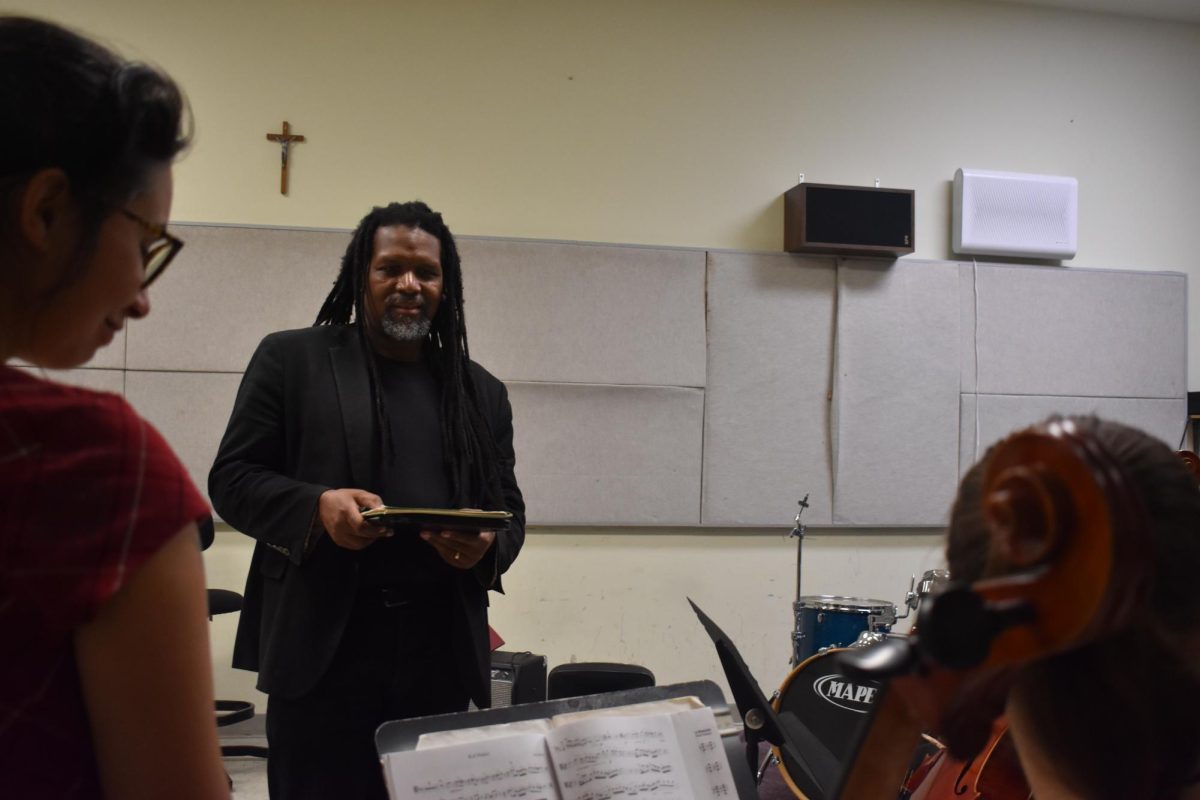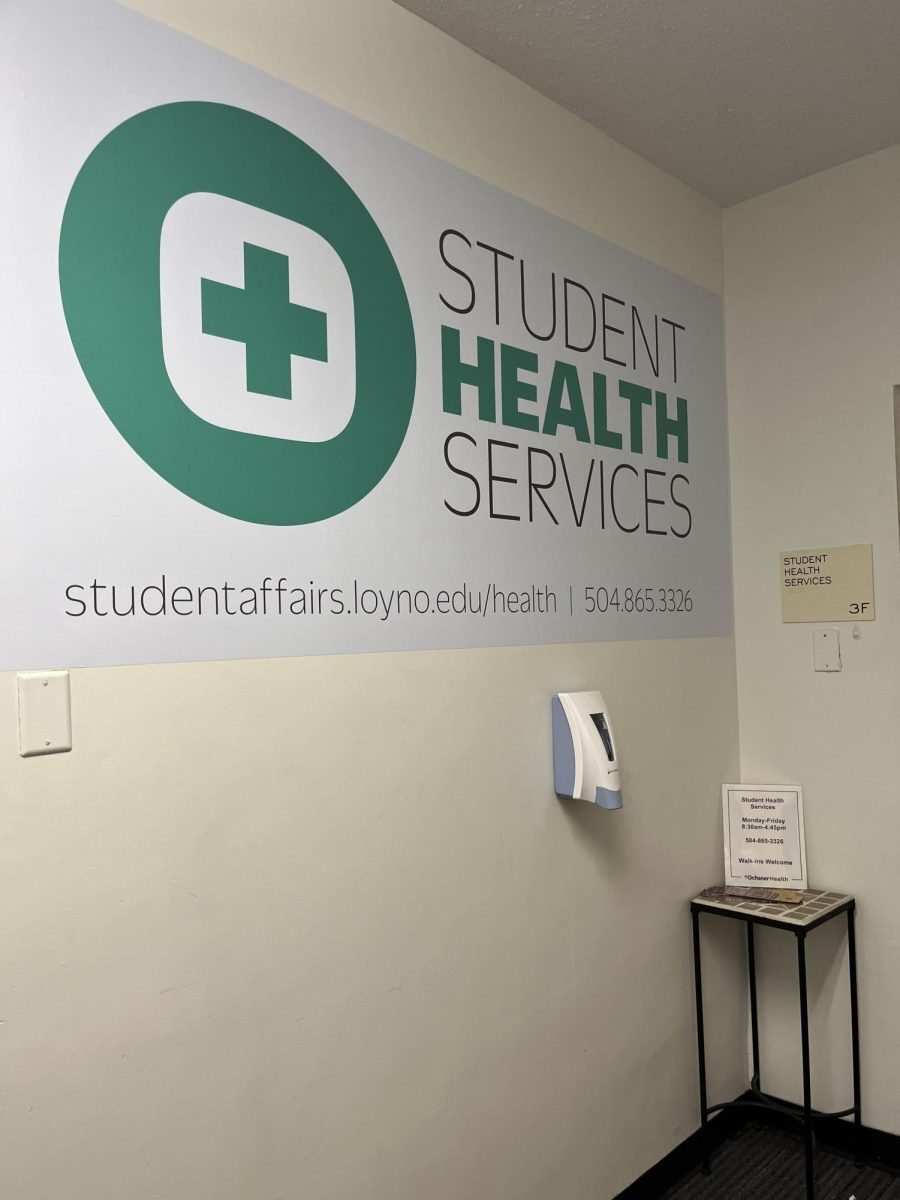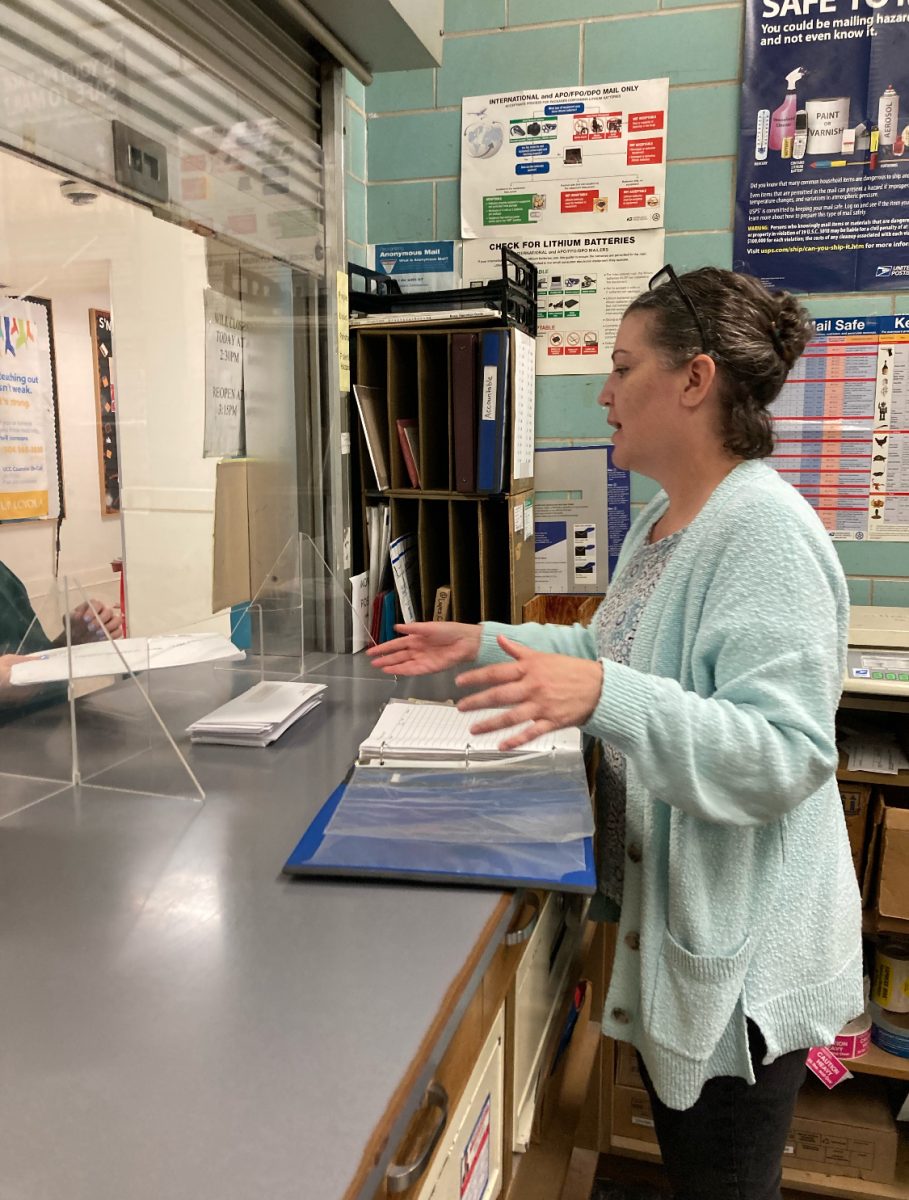University President the Rev. Kevin Wildes, S.J., addressed faculty and staff about the importance of a Jesuit education in a technologically advanced world and presented the Dux Academicus award at the President’s Convocation on Jan. 11.
The annual President’s Convocation serves as an opportunity to award faculty and staff various honors and grants for their service to the Loyola community. Along with these distinctions, Wildes spoke on issues facing the university.
Among the awards given were those honoring faculty members who have reached 25 years in service at Loyola. This year, seven faculty members were recognized. Recipients were awarded a gift of their choice, with a few requesting money be donated elsewhere.
Marquette Fellowships were awarded to nine faculty members. Marquette Fellowships are awarded to faculty selected by Wildes and Provost and Vice President for Academic Affairs Marc Manganaro. Recipients were awarded stipends of $9,500 to support full-time research or creative work relative to their field over the summer.
Ignatian Fellowships and University Senate awards were given out before the main honor of the night, the Dux Academicus Award. The award recognizes a faculty member who demonstrates the ability to impart the knowledge and wisdom of the liberal arts and sciences or the professions to students in a manner consistent with the distinctive philosophy of Loyola as a Jesuit university.
This year’s Dux Academicus was awarded to Patricia Dorn, Ph.D. of biological sciences.
“Known as an innovative teacher with a commitment to learning about and developing new approaches to learning has led her to be an active participant in interacting with other educators on campus,” Manganaro said.
Many of Dorn’s students have traveled with her abroad and pursued graduate degrees in relation to her studies of infectious diseases. Dorn also served as a local organizer of the Molecular Epidemiology and Evolutionary Genetics of Infectious Diseases conference, which met at Loyola this past fall.
After the Dux Academicus was awarded, Father Wildes addressed the crowd on the state of the university.
Wildes raised the question of what it means to be a university in today’s world.
Education in a modern world, according to Wildes, cannot be supplemented by technology. He explained the importance of a Jesuit education in relation to emerging technology.
“Technology raises the question of the nature of the university,” Wildes said. “Technology is not good or bad in itself, it’s how you apply it and use it.”
The key issue of education today is affordability, according to Wildes. Regarding tuition, Loyola falls in the middle tier, between the average in-state public univerisities and private colleges and universities.
Wildes said the average Loyola student leaves Loyola with $26,000 in debt.
Wildes stressed the importance of the non-economic value of a college education, specifically in the importance of a Jesuit education in that it focuses on the whole person and education for his or her well being.
Wildes said a Jesuit education is more than just information. He said it’s about knowledge and wisdom and that its education goes outside of the classroom and takes place in the whole person.
Eric Knoepfler can be reached at [email protected]












